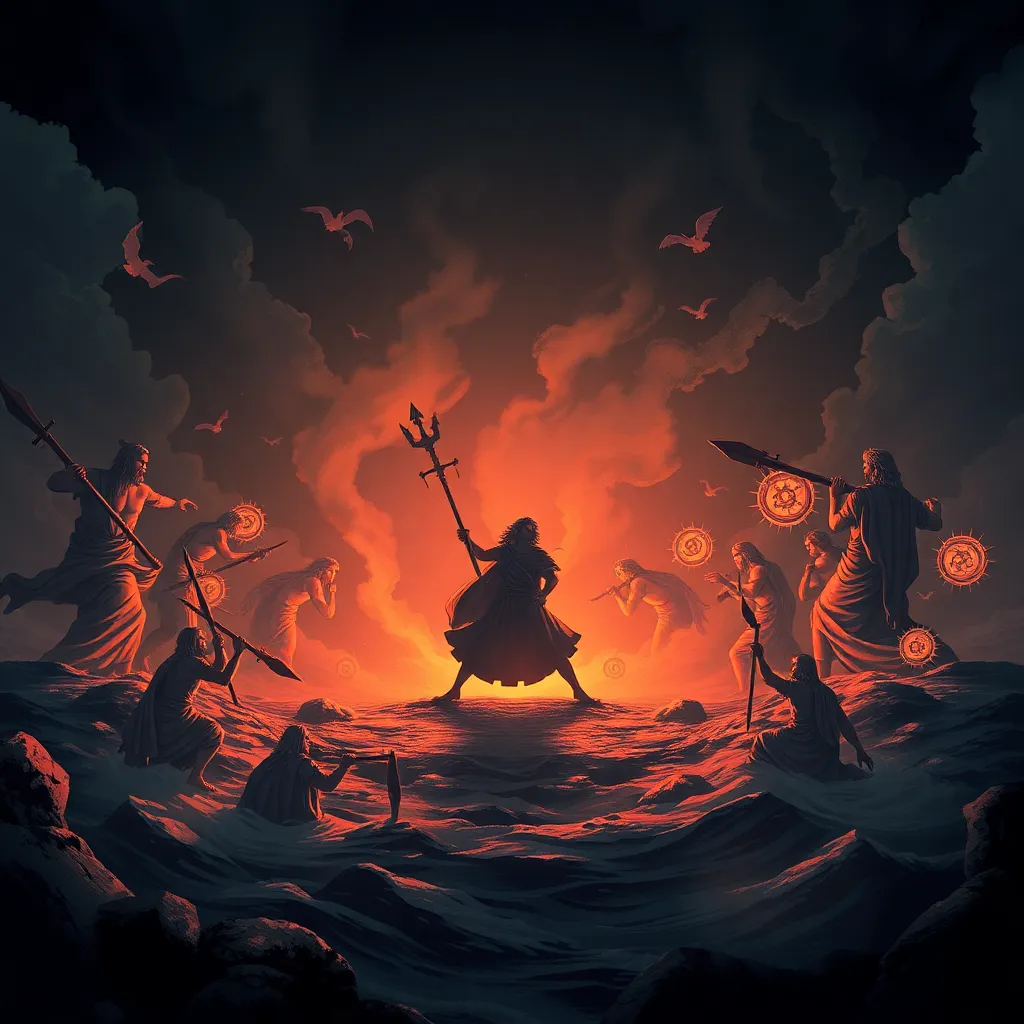The Role of Revenge in The Iliad: A Cycle of Violence
I. Introduction
The Iliad, attributed to the ancient Greek poet Homer, stands as one of the foundational texts of Western literature. This epic poem, set against the backdrop of the Trojan War, explores themes of heroism, honor, and the human condition. Among these themes, revenge emerges as a central motif that drives the narrative and shapes the fates of its characters.
Revenge is not merely a personal vendetta; it is deeply woven into the fabric of the heroic code that governs the characters’ actions. The quest for vengeance serves as a catalyst for conflict and tragedy, highlighting the cyclical nature of violence that permeates the story. In this article, we will explore how revenge in The Iliad perpetuates a cycle of violence, impacting both individual characters and the broader narrative.
II. The Concept of Honor and Revenge in Ancient Greek Culture
Ancient Greek culture was profoundly influenced by a heroic code that valorized personal honor and reputation. This code dictated the behavior of heroes, where actions were often driven by the need to uphold one’s honor and that of their family.
Revenge was intricately connected to this concept of honor. A slight against one’s honor or that of a family member could necessitate vengeance, ensuring that grievances were addressed to restore social equilibrium. The societal expectations surrounding vengeance were clear:
- Revenge was considered a moral duty.
- Failing to seek vengeance could lead to shame and dishonor.
- The act of revenge was often viewed as a path to restoring one’s status and reputation.
III. Achilles: The Embodiment of Vengeful Rage
Achilles, the Greek hero of The Iliad, epitomizes the theme of revenge through his wrath against Agamemnon. His motivations stem from a deep sense of personal insult when Agamemnon takes his war prize, Briseis, leading Achilles to withdraw from battle in protest.
This conflict between Achilles and Agamemnon highlights the implications of pride and the need for revenge:
- Achilles’ withdrawal weakens the Greek forces, showcasing how personal grievances can have far-reaching consequences.
- His pursuit of vengeance against Agamemnon fuels the fire of conflict, exacerbating the war’s brutality.
The consequences of Achilles’ rage are dire, culminating in the deaths of many Greek warriors and the eventual loss of his closest companion, Patroclus, which further ignites his desire for revenge against Hector.
IV. Hector: The Counterpoint to Achilles’ Revenge
Hector, the Trojan prince, serves as a poignant counterpoint to Achilles. As the defender of Troy, Hector’s motivations are rooted in duty and the desire to protect his city and family from destruction.
Hector’s actions are also driven by the societal expectation of honor, particularly in the face of Achilles’ wrath:
- He fights to uphold his honor and that of his family.
- Hector’s motivations reflect a collective responsibility to defend his people.
The tragic cycle of vengeance is set into motion with Hector’s death at the hands of Achilles, marking a pivotal moment that intensifies the conflict and leads to further bloodshed.
V. The Impact of Revenge on the Trojan War
Acts of revenge are not isolated incidents; they escalate the overall conflict of the Trojan War. Individual grievances fuel a broader cycle of violence, illustrating how personal vendettas intertwine with collective warfare.
The interplay between personal motives and large-scale warfare is evident in several key events:
- Achilles’ slaying of Hector is both a personal act of revenge and a significant moment in the war.
- The subsequent desecration of Hector’s body incites further tensions and retaliations.
Moreover, divine intervention plays a crucial role in shaping these human conflicts, as the gods frequently take sides, influencing the characters’ decisions and actions.
VI. The Cycle of Violence: From Personal Grievance to Widespread Destruction
The Iliad provides numerous examples of how revenge transforms individual grievances into widespread destruction. Key events illustrate this cycle:
- Achilles’ rage leads to the deaths of countless Trojans and Greeks alike.
- The retaliation against Achilles after the death of Patroclus signifies how personal losses escalate into collective vengeance.
This cycle raises questions about the nature of victory and the costs of revenge, impacting both victors and vanquished. The legacy of violence continues long after the immediate conflict, leaving scars on both sides.
VII. The Resolution of Revenge in The Iliad
The resolution of revenge in The Iliad is complex, involving themes of fate and divine influence. Ultimately, the cycle of violence is curtailed through the intervention of the gods and the recognition of shared humanity.
Achilles’ eventual reconciliation with Priam, Hector’s father, serves as a poignant moment of reflection:
- Achilles acknowledges the pain of loss, leading to a moment of empathy that transcends revenge.
- This reconciliation signifies a turning point, emphasizing the futility of vengeance.
The moral lessons surrounding revenge are clear: while it may seem justified, it often leads to further suffering and destruction.
VIII. Conclusion
In conclusion, revenge plays a pivotal role in The Iliad, shaping the narrative and the fates of its characters. The exploration of honor, personal grievances, and the impact of vengeance reveals a profound commentary on the nature of violence and its consequences.
The themes of revenge and its cyclical nature remain relevant in contemporary society, reminding us of the dangers of allowing personal grievances to escalate into broader conflicts. The Iliad’s enduring legacy lies in its exploration of human emotions, the quest for honor, and the tragic consequences of revenge.




